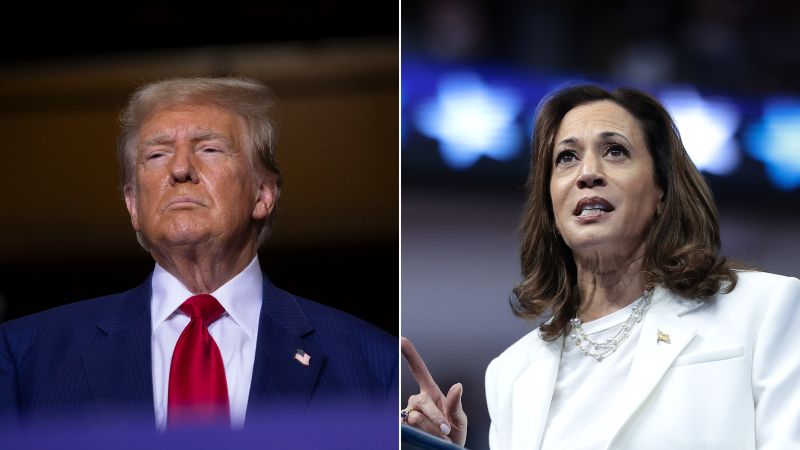The US economy is currently in a turbulent state, akin to a person stepping off a Tilt-A-Whirl ride – dizzy, vision blurry, and cautiously moving forward. Key events taking place in the next two weeks include the US monthly jobs report and the Federal Reserve policy decision. These events are typically of interest to economists and Wall Street, but in the current election climate, they could have significant implications on the presidential candidates’ messaging on the economy.
Former President Donald Trump and the Republicans have been blaming the Biden administration for any negative economic indicators, while Vice President Kamala Harris has had to navigate a more nuanced approach, acknowledging concerns about inflation while highlighting the Democrats’ success in sustaining the labor market. Harris has been able to catch up to Trump on economic issues, thanks in part to some positive economic news such as moderating price increases and continued consumer spending driving economic growth.
While lower inflation has been a positive development, the labor market has shown signs of strain with unexpected increases in unemployment and layoffs. The Federal Reserve’s aggressive interest rate hikes have made it more difficult for businesses to expand, leading to concerns about a potential economic slowdown. Despite the cooling of the economy, experts point out that slowing job growth is natural as the economy nears full employment.
Monthly jobs numbers, while volatile, are often subject to overreactions in an election season. It is important to consider the longer trend and not focus solely on individual reports. Economists are expecting the US to add 160,000 new jobs with unemployment ticking down to 4.2%. This level of job growth would likely prompt a rate cut by the Fed, providing stability to the economy. However, a worse-than-expected jobs report could lead to increased market volatility and a shift in the economic narrative for the presidential candidates.
The Federal Reserve plays a key role in controlling the speed of the economy, with interest rate cuts being used to maintain a steady labor market and prevent a downturn. The timing of these rate cuts is crucial to ensuring the economy remains stable. If economic data does not behave as expected, jobs may take center stage in the economic narrative for the presidential candidates, shaping their campaign messaging in the final stretch of the election.


